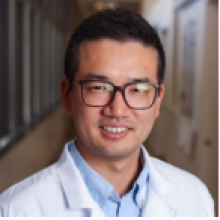MAE 298 Seminar: Shedding New Light on Transport Phenomena and Thermofluidic Applications

Abstract: We often view the world through fixed thermodynamic states (e.g., the glass is full vs. empty, or the temperature is hot vs. cold) rather than through time-dependent dynamic behaviors (e.g., the glass is filling up, or the temperature is changing). If we take these dynamics to extremes, there are opportunities to leverage transport-limited phenomena to augment a great diversity of existing technologies or even develop completely new ones. In this talk, I will discuss several ongoing projects. One project investigates water transport through hydrogels, which is a phenomenon that resembles many flows in biological tissues, biomedical devices and even atmospheric water harvesting devices. Drawing inspiration from organisms that continuously hydrate themselves from the air, we developed a solid-liquid hybrid approach to atmospheric water harvesting where a hydrogel “skin” facilitates rapid water capture from the air into a salty liquid desiccant. Another project involves developing a fast, convection-limited electrochemical technique to refine iron ore into pure iron for steel production. Through “boundary-layer engineering,” we provide a radical new approach to electrochemical reactor design. In addition, I will discuss a project on whether wetting altered phase-change heat transfer can improve heat transfer performance for power generation and chemical processing applications. We develop new diagnostic and analysis tools to reconstruct 3D droplet geometries for wetting characterization. All of these projects demonstrate how a deep, fundamental understanding of key physical phenomena can completely alter the way we solve problems. These projects have also led to commercialization efforts for new technologies.
Bio: H. Jeremy Cho is an assistant professor of mechanical engineering at the University of Nevada, Las Vegas (UNLV). He received his bachelor's degree in mechanical engineering from the University of Michigan. He received his master's degree and doctorate in mechanical engineering from MIT where he focused on phase-change heat transfer and interfacial phenomena. He was also a postdoctoral research associate at Princeton University in the Chemical and Biological Engineering Department where he studied polymer physics. After joining UNLV in 2019, he has received the National Science Foundation CAREER and the American Chemical Society Petroleum Research Fund Doctoral New Investigator awards. He has also been awarded funding through the NSF Southwest Sustainability and Innovation Engine (SWSIE) and the Department of Energy Advanced Research Projects Agency–Energy (ARPA-E). He has been serving as chief science officer to WAVR Technologies, a startup company he co-founded in 2024 to commercialize atmospheric water harvesting. Originally from Hawaii, Jeremy named his group “Da Kine Lab” from Hawaiian Pidgin, as “da kine” is a placeholder term similar to “whatchamacallit” representing the very diverse range of research topics he pursues. These topics include liquid-vapor phase-change phenomena, heat and mass transfer, interfacial and wetting phenomena, surfactant chemistry, polymer physics, electrochemistry and polymer physics. His research addresses critical societal needs in energy, environment and water.
Share
Upcoming Events
-
CEE Seminar: Walt Disney Imagineering, Construction Management – Internship Opportunities
-
MSE 298 Seminar: Stretching Possibilities: Strain-Tuned van der Waals Materials
-
MSE 298 Seminar: Low-Dimensional Quantum Materials Design Through Atomically Precise Film Synthesis
-
CBE 298 Seminar: Precision Engineering of Macromolecular Systems as Transducer Biomaterials
-
MSE 298 Seminar: Architected Materials for Energy and Health Care - The Spinodal Advantage
